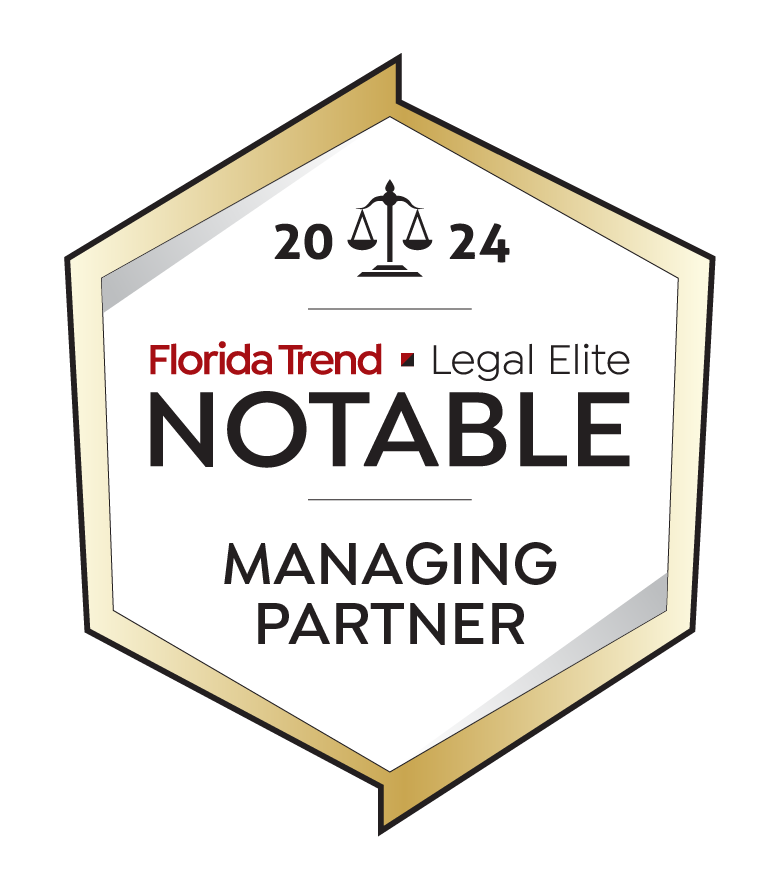One of the greatest gifts you could give your family is to organize your affairs so that your loved ones have little to worry about after you pass on. It is also important to ensure that your wishes will be followed after you die or if you become incapacitated.
Estate planning accomplishes both objectives while minimizing taxes and sometimes protecting property from creditors. A Coconut Grove estate planning lawyer can help you develop legal documents that will ensure the assets you worked so hard to acquire will pass to whomever you choose. Our esteemed attorneys can guide you every step of the way.
Key Concepts of Estate Planning
Estate planning can be an uncomfortable discussion for some people because they prefer not to think about death or being unable to make their own decisions. Another reason people do not like to think about estate planning is that some of the terms might be unfamiliar, making it seem intimidating. A Coconut Grove attorney can explain all the terms involved with estate planning so that you can feel confident in your legal choices.
The Estate
An estate is the property and debts a person leaves behind when they die. Any property could be part of the deceased person’s estate if it is held in their name. One aspect of estate planning is taking ownership out of a person’s name so that it is not part of the person’s estate, since doing so could avoid probate and, in some cases, prevent certain taxes.
Probate
Probate is the process of gathering a deceased person’s property, paying their debts, and distributing what is left. A Probate Court oversees these activities. Probate can be slow, and it often requires a year or more to complete.
Last Will and Testament
The Last Will and Testament is a document a person makes while alive and decides who gets what property when they pass. The person who makes the will is called a testator, and the people who receive property in a will are the heirs. Wills sometimes go through probate, so when the testator makes a will, they name a personal representative to handle the probate process. That person is the executor and they can be a family member or someone else.
Trust
A trust is a way of transferring ownership of property away from the current owner. There are various kinds of trusts that have different purposes. Sometimes the person who makes the trust, called the grantor, can still control the property in the trust, and sometimes they cannot. Some reasons a person might put property into a trust include:
- Protecting it from creditors;
- Reducing tax liability;
- Avoiding the probate process.
Someone who receives property under a trust is called a beneficiary. Every trust must have a person who manages it, called the trustee, and they distribute the property in the trust to the beneficiaries when the grantor dies.
Durable Power of Attorney
A durable power of attorney allows someone, called an agent, to handle a person’s property while they are alive. Most people give a durable power of attorney to a spouse, a trusted friend, or an adult child. If someone develops dementia, for example, their agent could pay their bills, hire someone to look after them, and take care of all their needs without having to go through the court process of appointing a guardian.
Healthcare Surrogate
A healthcare surrogate makes medical decisions for an adult who cannot make them for themself. A person could name someone they trust and discuss their wishes when they are healthy, so the surrogate can follow their wishes if the person becomes unable to communicate their choices. A Coconut Grove estate planning attorney can help someone properly identify their healthcare wishes so that there is no room for confusion when the time comes to implement it.
Living Will
A living will describes the end-of-life care a person agrees to receive. The person can specify what treatments they want, whether the medical personnel should take all possible measures to preserve life, or whether the person does not wish to be resuscitated.
Developing an Estate Plan
Many people could benefit from having an estate plan, but each person’s plan is likely to be different. The complexity of an estate plan depends on the complexity of someone’s finances and goals.
Some people want to maximize the value of the estate they pass to their children, and others want to minimize taxes. An estate planning attorney in Coconut Grove will listen to a person’s goals and advise them about the best way to accomplish them, making sure the plan is flexible enough to change as the goals and needs change.
For example, a young couple could hold all their assets jointly, so each owns everything outright if the other dies. They could name a guardian for their children if something happens to them and designate each other as healthcare surrogates. As they get older and acquire more assets, they might put some in a trust to make provisions for the long-term care of a disabled child. Estate planning could address all these issues.
Protect Your Future with a Coconut Grove Estate Planning Attorney Today
Estate planning is not just for the privileged. Everyone could help themselves and their children by creating a thoughtful and detailed plan for what should happen when they die or become unable to make legal decisions. A Coconut Grove estate planning lawyer can consult with you on the best way forward. Schedule a free consultation today with The Florida Probate & Family Law Firm.





























